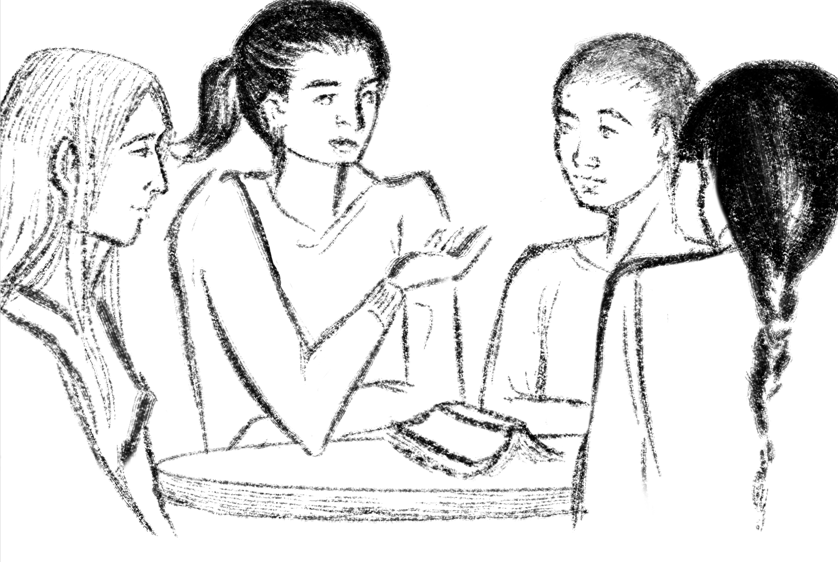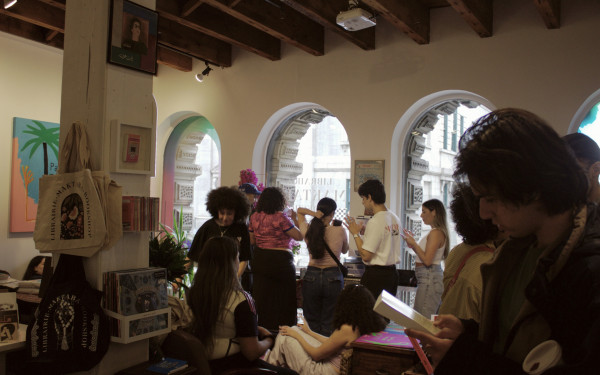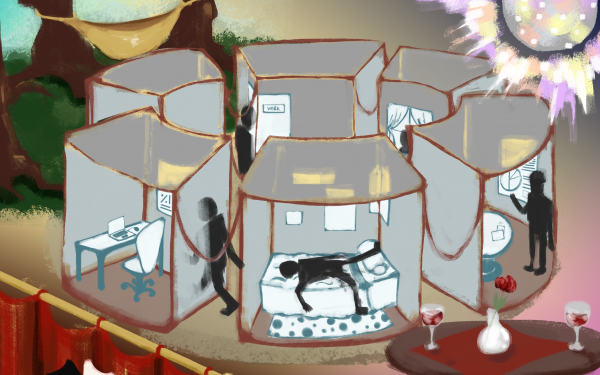A radical history of book clubs
In the past, book clubs were a modern means of women’s socialization
The first time I remember truly feeling like I belonged was in my elementary school library’s book club.
I was in Grade 5. My personality at the time was that I read almost a book a day. Every Friday at the library, we would talk about that week’s book while eating dried mango that my librarian brought from home.
Now, as a 24-year-old graduate student living away from home, I’ve joined a book club with my roommates and friends. We sit and chat—the conversation has a bit more depth than it did in fifth grade—and eat shitty pizza.
The last few years have seen a resurgence of book clubs and their popularity. People today form and join book clubs as a means of reminding themselves to read, for leisure or to catch up with their friends. However, the history of book clubs is rooted in activism and the sharing of theological ideas.
Although it is unclear who started the first-ever book club, many attribute it to a 17th-century woman named Anne Hutchinson. Hutchinson formed a book club in 1634 as a means to gather with other women and read sermons. It is generally understood that book clubs started as a way for women to gather during times of deep-rooted oppression. Sometimes called “literary societies” or “reading societies,” book clubs served as community gatherings where people could engage socially and intellectually with others, primarily focused on religion and philosophical topics.
With women having been historically excluded from many intellectual and social spaces, the emergence of book clubs and other social groups allowed them to express themselves within the confines of an oppressive regime. The clubs were often focused on education and the pursuit of knowledge. Gathering secretly to discuss literature during a time when women were excluded from universities and other intellectual institutions was a form of resistance.
Nowadays, book clubs have become commonplace in society. Still predominantly made up of women, book clubs continue to be a reason to gather and talk about books, but they have also become much more than that. With celebrities like Oprah starting their own book clubs, gaining thousands of readers and building community, book clubs have taken an incredible new form as modern ways for people of all backgrounds to connect.
Especially when considering the history of banned books and the politicization of literature, modern-day book clubs represent resistance to the idea that reading and knowledge should be policed. Banned books book clubs have emerged as a niche subcategory of the practice, which encourages members to engage with books that have been arbitrarily censored by various authority groups and governments. Centering book clubs around banned books and encouraging people to defy societal norms continues to support the historically radical nature of book clubs.
We have come a long way from secret gatherings of resistance and young Hannah discovering the sweet taste of dried mango in an elementary school library. People look for belonging in small places. Whether we do so in a park sharing wine with friends and discussing The Shining, or by sitting in a classroom and dissecting historical texts, it’s all relative.
In a world where voices of dissent are often silenced, book clubs stand as quiet yet powerful acts of resistance, uniting minds in the shared pursuit of truth, empathy and change.






